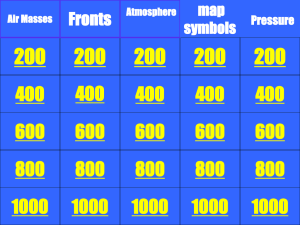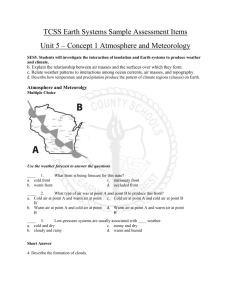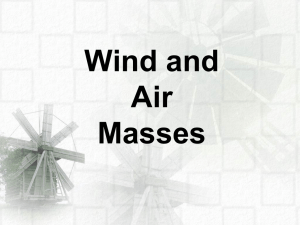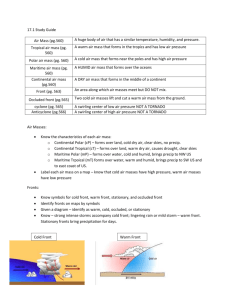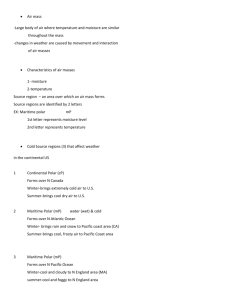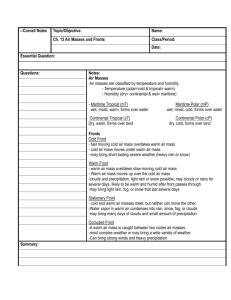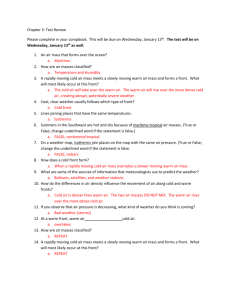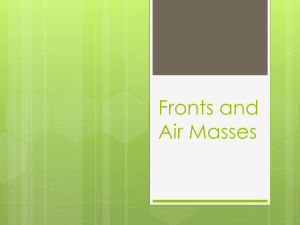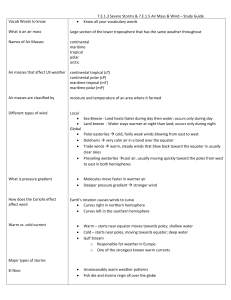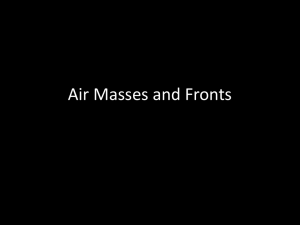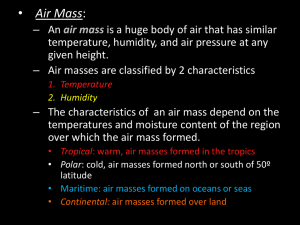Name: Period : Maps, Air Masses, and Fronts Weather Maps
advertisement
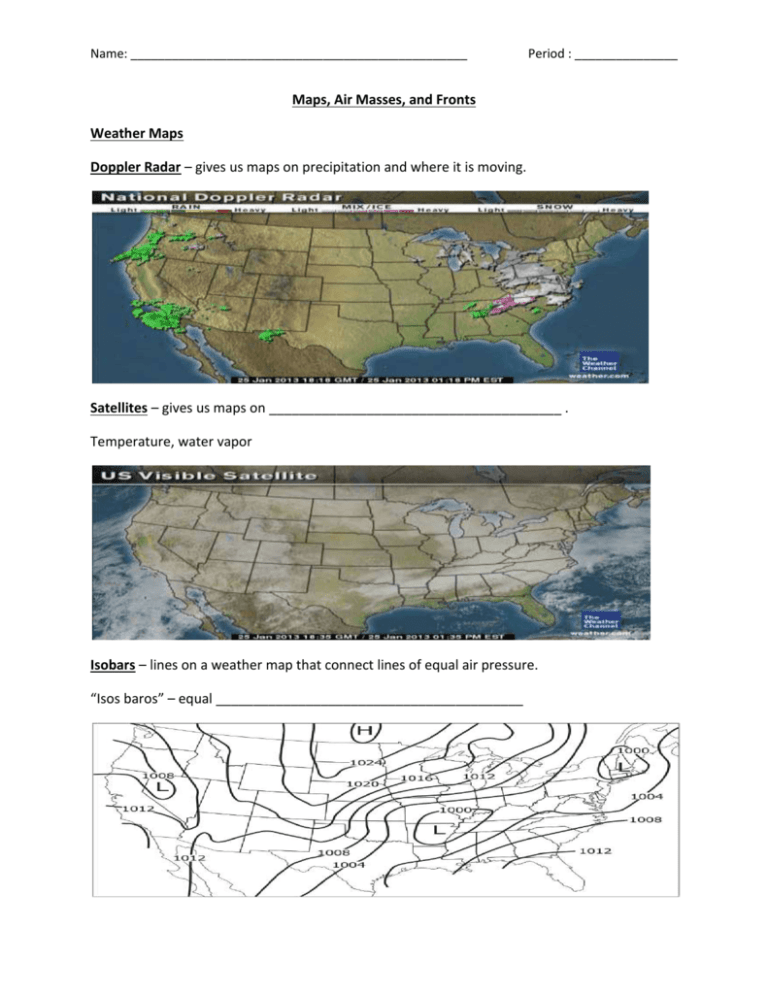
Name: _________________________________________________ Period : _______________ Maps, Air Masses, and Fronts Weather Maps Doppler Radar – gives us maps on precipitation and where it is moving. Satellites – gives us maps on _______________________________________ . Temperature, water vapor Isobars – lines on a weather map that connect lines of equal air pressure. “Isos baros” – equal _________________________________________ Name: _________________________________________________ Period : _______________ National Weather Service/National Oceanic and Atmospheric Administration website: Besides radar and satellite maps, what are 2 other things you can find from this website? 1. ____________________________________________________________________________ 2. ____________________________________________________________________________ Air Masses - Defined An air mass is a large body of ________________ that has similar temperatures and moisture throughout. Can come from land (continental) or sea (maritime). ___________________________________ air masses tend to come from the tropics. (Tropical) Cold air masses tend to come from north of the U.S. (Polar). Air Masses - Types We combine the moisture classification with the temperature classification to characterize the air masses. Continental Polar (cP) – dry and _____________________________________ Continental Arctic (cA) - dry and very cold Continental Tropical (cT) – dry and warm Maritime Polar (mP) – ___________________________ and cold Maritime Tropical (mT) – moist and warm Name: _________________________________________________ Period : _______________ Fill in the missing air masses in the circles. National Geographic Air Masses Video: When air masses meet, what do they create? ________________________________________ ______________________________________________________________________________ What is a front? A front is the _____________________________ that forms between two different air masses. Fronts occur in the _______________________________________ latitudes because there are both warm and cold air masses there. Name: _________________________________________________ Period : _______________ Types of Fronts: _________________________________ Cold _________________________________ Stationary Draw the front symbols with the correct color using colored pencils. Front Symbols: Warm Front A warm front occurs when a ________________________ air mass meets a cold air mass. The warm air mass overtakes the cold air mass because the warm, less dense air moves over the cold air and gradually replaces it. Brings ____________________________________ precipitation Clear and warm when it is gone Fill in the temperatures in the circles. Name: _________________________________________________ Period : _______________ Cold Front Cold air mass meets a warm air mass. The cold, more dense air moves _____________________________ the warm air mass and pushes it up. Moves ________________________________. Thunderstorms, heavy rain, or snow Cold weather follows a cold front. Fill in the temperatures in the circles. Occluded Front A faster moving cold air mass ___________________________________ a slower moving warm air mass and forces the warm air mass up. The cold air mass continues until it meets another cold air mass that is warmer. The cold air mass then forces this air mass to rise. It has cool temperatures and large amounts of _______________________________________. In other words, when a cold front catches up to a warm front. (A warm air mass sandwich :)) Name: _________________________________________________ Period : _______________ Stationary Front Cold air mass meets a warm air mass and does not move much (it’s stationary). The weather similar to a ___________________________________________ front. Write what score you received on the Study Jams Quiz: ________________________________
